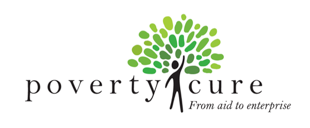Combating material poverty involves cultivating its antithesis: wealth. But how is wealth created? History has shown that societies need certain institutions and freedoms in order to truly flourish. On the other hand, societies without these same institutions and freedoms languish.
Get the Series
Civil Society
A robust civil society is foundational to the happiness of every nation. Civil society is composed of communities of individuals that come together over common interests and commitments. Any grouping that is larger than the family but smaller than the state is considered part of civil society. This includes book clubs, churches, businesses, voluntary associations, and even Little League teams. These institutions have special abilities to meet the needs of the material poor in critical ways that government aid simply cannot.


Political Freedom
Political freedom is the ability of a nation’s citizens to participate freely in the political process. It involves both the freedom of the majority to influence and guide policy (rather than merely entrenched insiders doing so) and the freedom of political minorities to publicly advocate for their positions. In the words of Lord Acton, “The most certain test by which we judge whether a country is really free is the amount of security enjoyed by minorities.” Practically, this absence of coercion is express…


Rule of Law
Rule of law is among the most important factors of success in any socioeconomic ecosystem. It is the immaterial foundation upon which we construct all of our formal institutions. It is what allows us to engage with one another in social economic exchange of all kinds with complete strangers - from your working agreement with your new employer to your trade with the strawberry grower at the farmer’s market - because the law acts as a basic framework for our interactions and as an objective third party should any conflict or wrongdoi…


Economic Freedom
There are many dimensions to economic freedom and much debate about its definition and measurement. Here, we'll define economic freedom as the ability to engage freely in productive economic activities such as trade and wage labor, to form businesses and practice commercial activity without unreasonable regulation or restriction, to own private property securely and without threat of arbitrary confiscation, and to save, invest, or make purchases as one sees fit. In any society, in any country, economic fre…


Globalization
Economic globalization involves societies around the globe becoming interdependent by trading—whether ideas, natural resources, finished products or labor. If such exchanges are uncoerced and free of deceit, they tend to be win-win exchanges. Country A’s land is best for growing fruit. Country B’s land has a poor climate for growing fruit but is well-suited for producing cereal grains. If the two countries freely exchange agricultural goods instead of each trying to grow all of its own food, both countries…



Rethink Poverty
Subtitled in 15 languages, this six part video series that will change absolutely everything about how you approach charity and missions.

